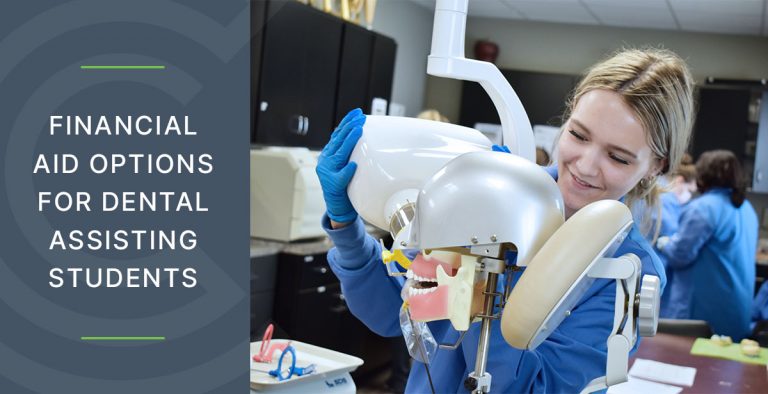It’s safe to say that figuring out the right career path for your future can be one of life’s bigger challenges. But once you’ve decided what to do and where to get the training you need, the next step in the journey to your future is the how. How are you going to pay for it? If you’ve already chosen the field of dental assisting, you’re in luck, because we have rounded up some of the financing options available to get you started on your journey to a career helping people.
Federal Loans and Grants
The federal government offers a variety of loans and grants to students who qualify. But before you even apply for any type of financial assistance, you must first complete the Free Application for Federal Student Aid or (FAFSA). The application can be completed online, and you should confirm the application deadline for your state to be sure you submit your FAFSA before the deadline. If your application is approved, you should receive notification of how much financial aid you qualify for based on your income and other factors. Federal aid is broken down into two areas which are grants and loans.
What Types of Federal Loans Are There?
There are 4 types of federal student loans to be aware of.
- Direct Subsidized Loans – available to eligible undergraduate students who demonstrate financial need to help cover the costs of higher education at a college or career school.
- Direct Unsubsidized Loans – available to eligible undergraduate, graduate, and professional students, but eligibility is not based on financial need.
- Direct PLUS – available to graduate or professional students and parents of dependent undergraduate students to help pay for education expenses not covered by other financial aid. Eligibility is not based on financial need, but a credit check is required.
- Direct Consolidation Loans – allow you to combine all of your eligible federal student loans into a single loan with a single loan servicer.
Federal Pell Grants
The biggest difference between a federal grant for your education and a federal student loan, is that a grant does not have to be repaid in most situations. Pell Grants are awarded based on extreme financial need and you must qualify financially to receive funds from a Pell Grant.
Private Loans
If you don’t qualify for federal aid of any kind through FAFSA, you may still qualify for a student loan through a private lender. That can be a bank or the school itself, but be sure to review all the terms of a private loan. Federal loans are generally less expensive and have low interest rates and more options for repayment.
No matter what option is the best option for your situation, one thing is clear and that is getting the training you need to launch the career you want, is the most important thing to consider. If the career you want is to be a Dental Assistant, you should check out the Dental Assisting Program at Caris College. With a fast-paced curriculum and hands-on training in a working clinical lab, you could be working in the dental field in as little as 10 months! Check out our Financial Aid opportunities or schedule an appointment today with our admissions department to learn more about your options.
https://studentaid.gov/understand-aid/types/loans
More on dental assistant certification
